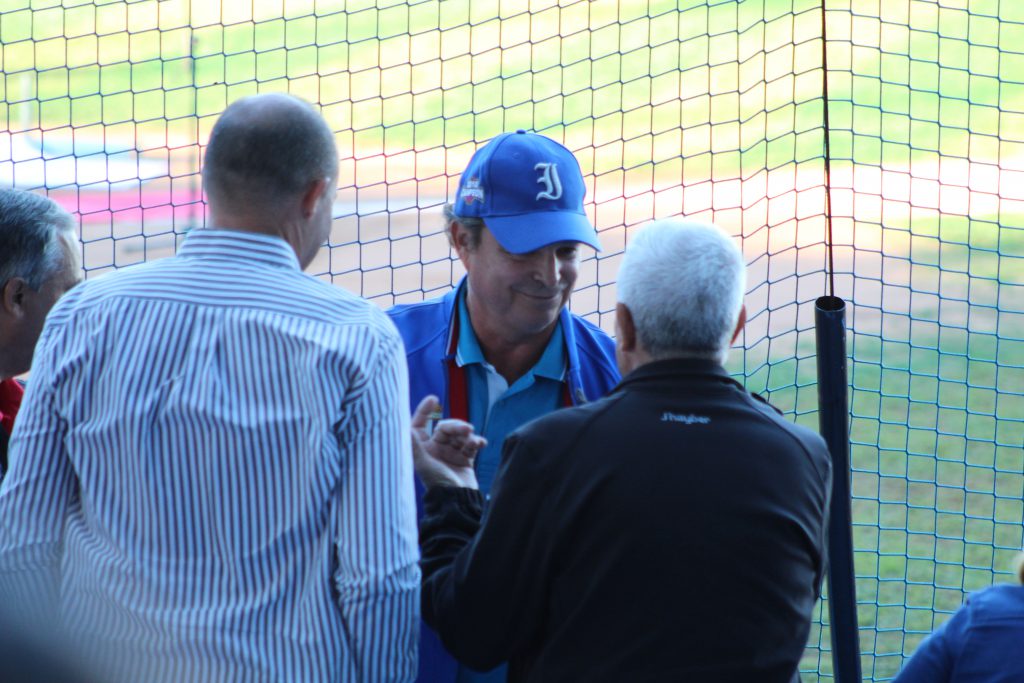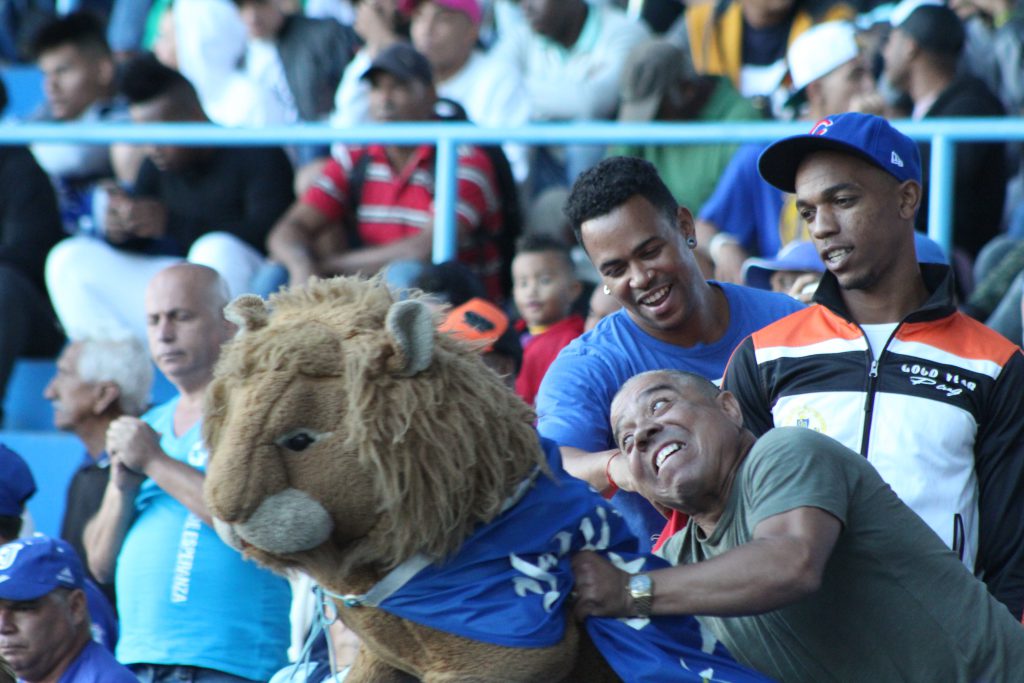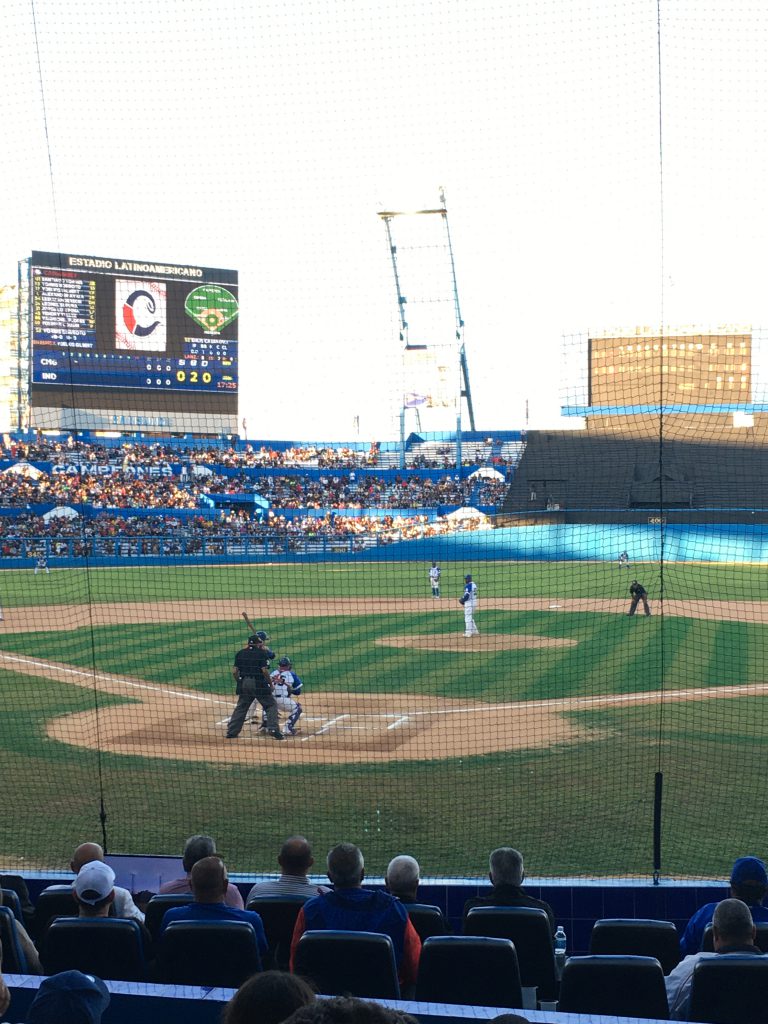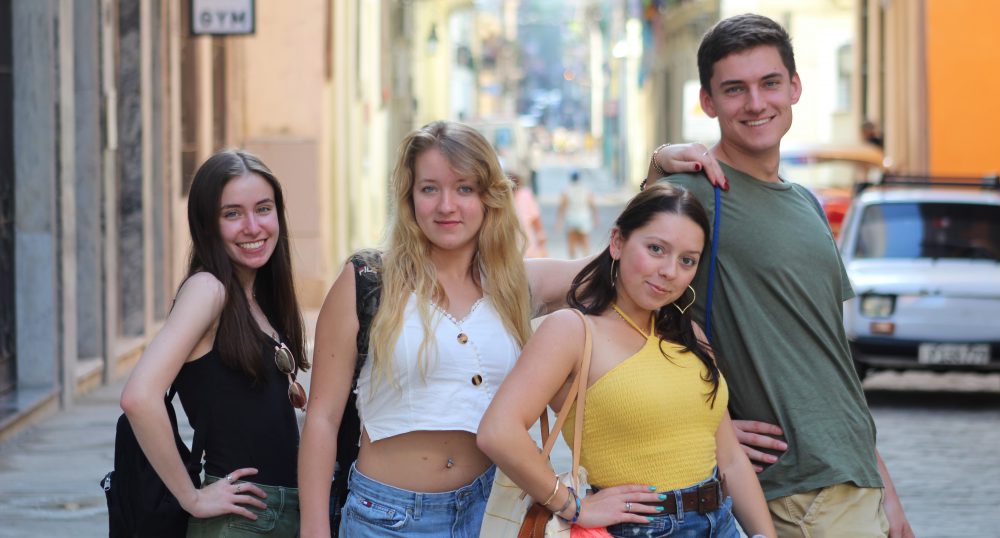In Cuba, baseball is everywhere. It’s a ubiquitous cultural backbone that, much like the antique cars that roam the streets of Havana, has evolved over the past seventy years and transformed from its original American roots into something that is now distinctly Cuban. Baseball can be seen in jerseys and hats, both of Cuban and MLB teams, in the games being televised in hotels and bars throughout Havana, and in the enthusiasm with which the Cuban people talk about la pelota.
Our group had the unique opportunity to experience this firsthand the Sunday after we arrived in Cuba, when the Industriales of Havana clashed with Camagüey in a semifinal playoff game at the Estadio Latinoamérica in Havana. The atmosphere in the stadium was nothing like that of any American sporting event I have ever attended. Remarkably, alcohol was strictly prohibited inside. Despite this, the Cuban people showed up en masse, even well before the scheduled start time of five o’clock. Our tour guide Anna Elena—whom we referred to as the “Mayor of Havana” due to her connections and ability to skip lines—was able to work her magic and procure phenomenal seats for our entire group, with the caveat that we needed to arrive three hours before the game began.
When we showed up shortly after two o’clock, a fair number of Cubans were already there, with many more trickling in as the shadows on the field slowly expanded and the sun sank below the stadium walls. The importance of the game was highlighted well before it was even underway, when a man in a blue hat entered a few rows in front of us, smiling and shaking hands with everyone around him. Our bus driver quickly explained that this man was Fidel Castro’s son.

The three hour wait took its toll on our group’s stamina and morale, but once introductions of the teams got underway, it was difficult to not be energized. As the visiting team, Camagüey—a true juggernaut of Cuban baseball seemingly equivalent to the NBA’s Golden State Warriors of the past half-decade—was introduced, the small section of visiting fans erupted in cheers, which were drowned out by the boos of the rest of the stadium, all rabid supporters of the Industriales. The introduction of the Industriales, by contrast, prompted such loud cheers and applause that I wondered if even the Rolling Stones got an equivalent ovation when they visited Cuba in March of 2016. The fervor of the crowd was perhaps best exemplified by this man, who brought an enormous lion (the Industriales’ Mascot) into the stadium:

Just prior to the start of the game, an important-looking Cuban government official addressed the crowd passionately about Cuba’s exclusion from the 2020 iteration of the Caribbean World Series in Puerto Rico, a decision he said was politically motivated by the Government of the United States. His speech lasted several minutes and, based upon the reactions of the crowd, seemed to give voice to how many Cubans felt about the situation. He called for the governing body of the Series to stand up to U.S. influence and allow Cuba to participate, as they have done since 2014. In that moment, I consciously felt embarrassed to be American. As our group was told many times, however, the Cuban people as a whole harbor no animosity toward Americans, especially those who desire to travel to Cuba and experience it firsthand.
When the game finally began, the electricity in the stadium was palpable. The Industriales got off to a rough start, giving up two runs in the first inning and being forced to pull their starting pitcher after it quickly became clear that he was having difficulty with his command. At this point I noticed another stark difference between this game and U.S. sporting events. Here, often when the home team struggles at the onset of a game, the crowd loses interest and becomes quieter, if not absent altogether as a factor. In Cuba, it seemed to be quite the opposite: the slow start appeared to galvanize the Industriales’ fans, prompting ever-louder cheers and more energy as the game progressed into the middle innings, even as the Camagüey starting pitcher appeared to have complete control of the game to go along with his team’s 2-0 lead.

At about the halfway point of the game, our group—having not eaten at this point for five-plus hours—decided to head out and beat the inevitable crowds and traffic that was to come. We then watched the closing innings at a restaurant near our residencia in Vedado. The Industriales dug themselves into a 7-0 hole and, despite a valiant comeback effort in the last two innings, fell short and lost 7-5. Even though we did not stay for the entirety of the game, it was still an incredible experience, one which made it abundantly clear to us how important baseball is in modern Cuban culture.
